The Necessary Transformation… Luxury Watchmaking After COVID-19
COVID-19 will be a catalyst for the transformation of the industry.
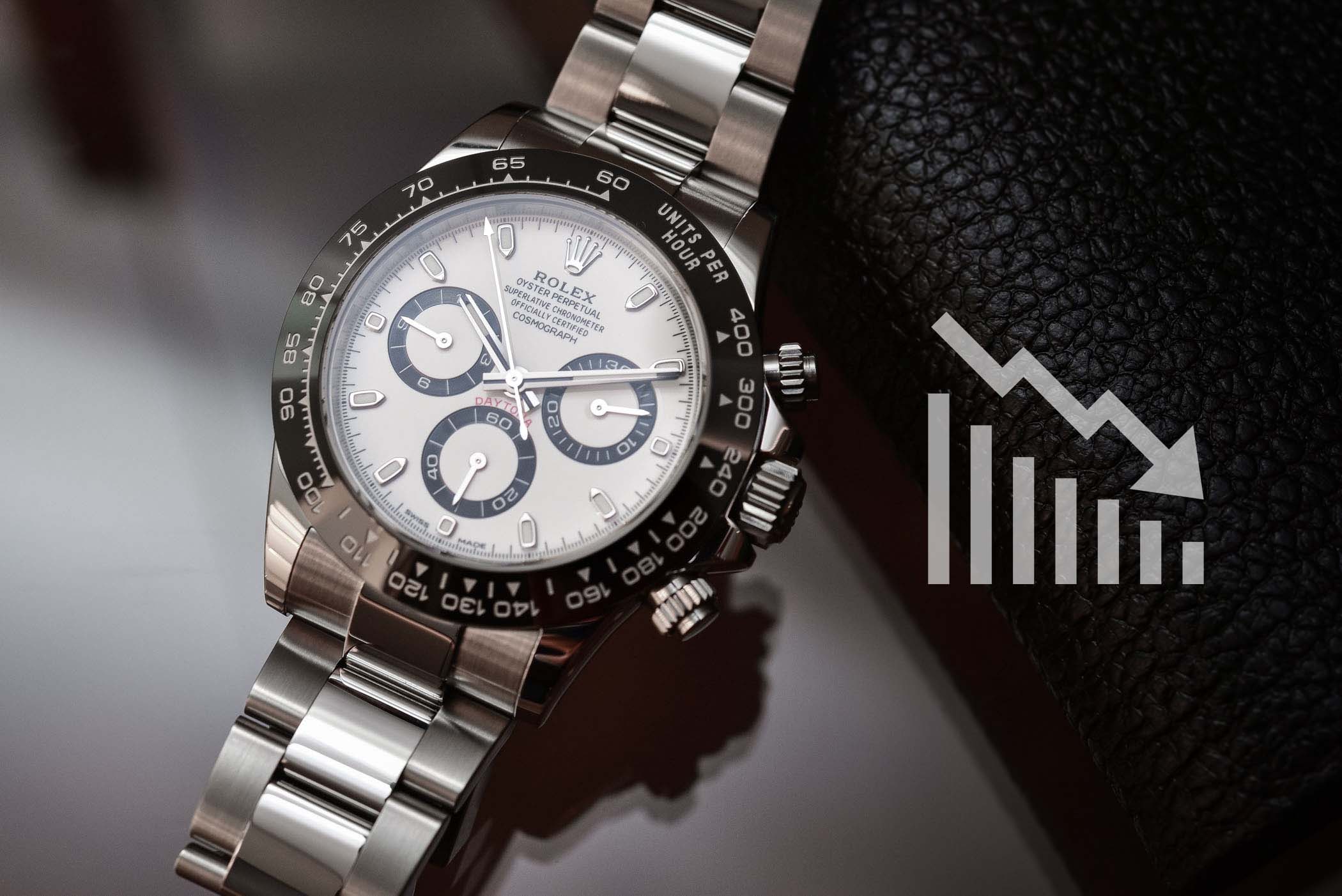
There is no doubt that the outbreak of the COVID-19 pandemic will take a heavy toll on the watch industry. Watch brands are facing a collapse in sales and this crisis will be one of the gravest in decades. Nobody knows what the exit scenario from lockdown will be and how deep and how long the crisis will last. Crises are eventually overcome but companies will emerge to face a perplexing new scenario. Coronavirus will be a catalyst for monumental changes for the world… and for the watch industry. The luxury watch industry took a serious hit with the 2008 subprime crisis. Following years of strong growth, the 2008 crisis forced the Swiss watch industry to rethink some of its practices, for instance with regards to pricing (just check the prices of tourbillon watches). The toll was heavy and Swiss watch exports fell by as much as 22.3% in 2009. Transformation is often crisis-driven or crisis-triggered. Naturally, watch brands are now operating in full contingency mode, activating short-term procedures to ensure business continuity. But it is also time to plan for an eventual recovery.
Increased polarization
The industry will end up increasingly polarized. Sadly, some brands won’t survive the crisis. And because of their scale and power, the largest brands will account for an even larger part of the business. But there will still be room for smaller brands and independent watchmakers to develop sustainable and profitable niches. The fact that they are small means they are more agile and the creativity that characterises them translates into clear product differentiation.
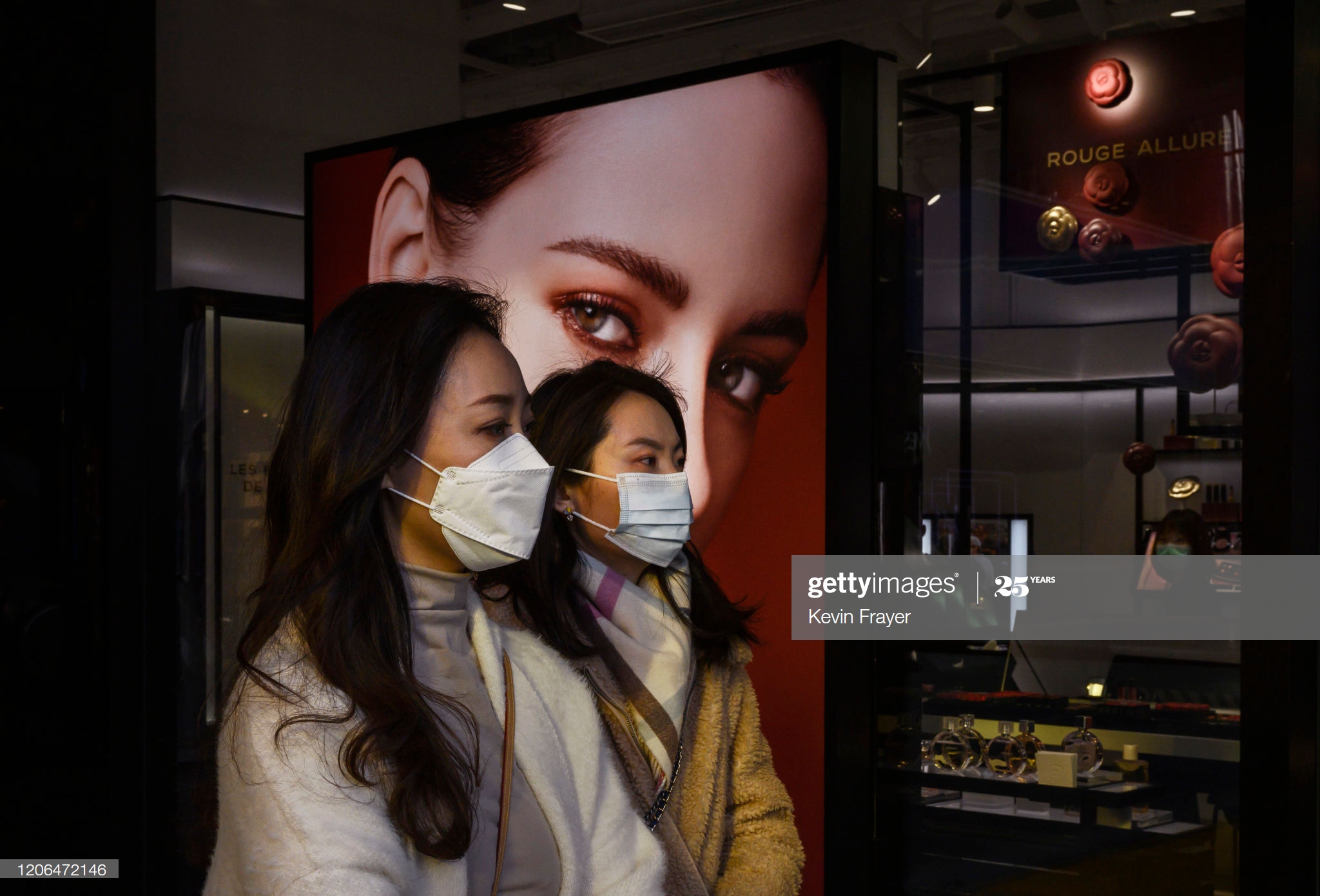
Luxury watchmakers will still face some structural challenges. In particular, the smartwatch expansion has come at the expense of the lower-priced Swiss timepieces. The mid/low-end segments will be under pressure more than ever and will need to adapt. The COVID-19 crisis is also a call for companies to reassess their dependency on China. While Chinese shoppers will most likely drive any eventual rebound, brands will have to adjust their strategy in China and recalibrate their exposure to the Chinese customer.
Value-delivery – Customer-centricity
This fundamental change was needed before the COVID-19 outbreak but there will be mounting pressure for increased customer-centricity. Delivering value to customers starts with products and a thorough understanding of their expectations. Creativity, authenticity (hand-crafted products, premium quality and lasting value) and relevant pricing will be more crucial than ever.
The industry will also have to raise the bar with regards to customer service, in particular aftersales services. Minor repairs can take months and can be very expensive. This is not acceptable in any industry and even less in the luxury industry.
Unlocking omnichannel – understanding the connected customer
Creating seamless experiences through multiple channels will be more important than ever. The industry needs to better understand omnichannel and how the different channels work together. In particular, brands should embrace digital activities and understand how these can influence their business. This has become an immediate contingency with the current global lockdown and this will inevitably accelerate the digitalization of the industry. It is a matter of operational efficiency and providing an engaging experience to online shoppers.
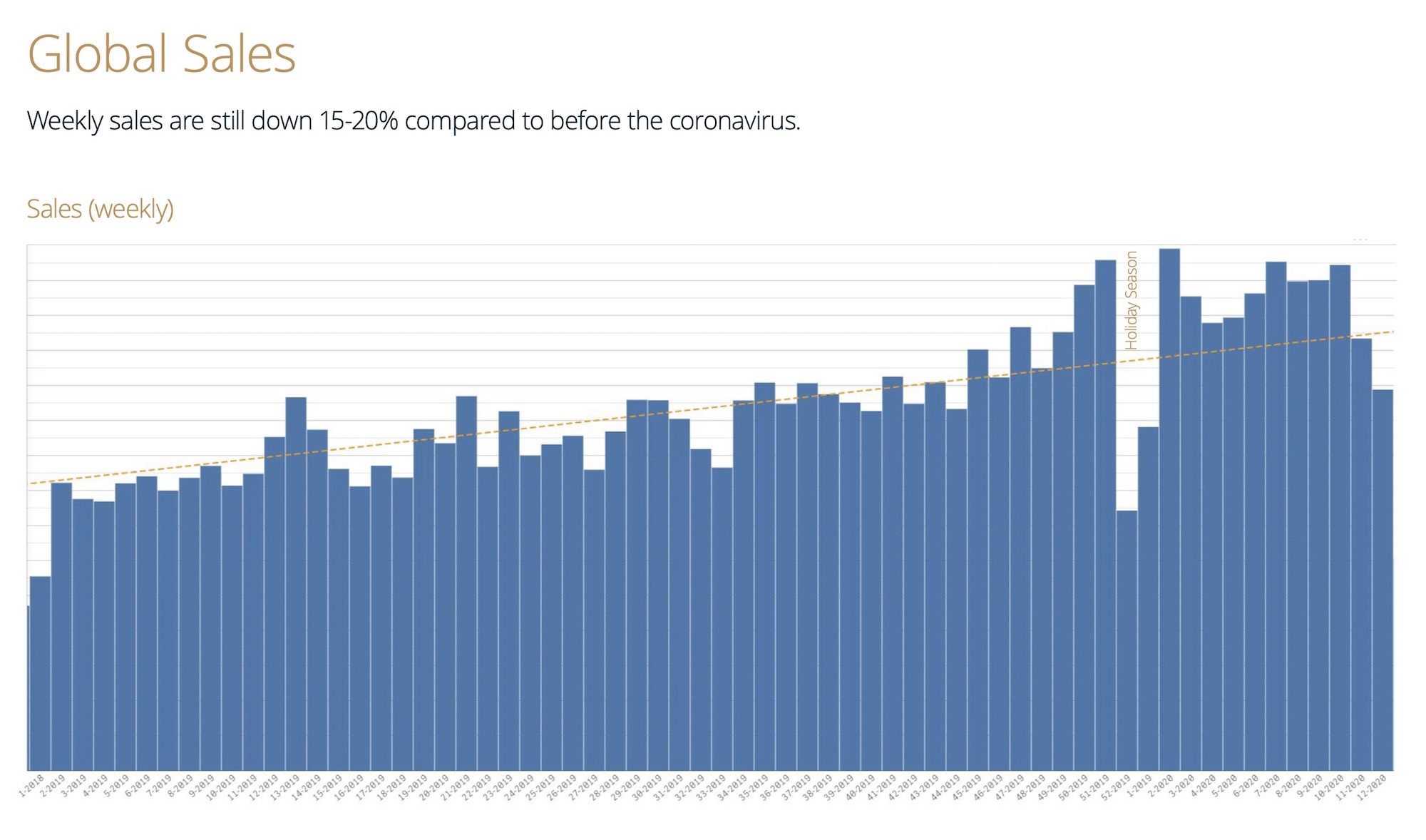
The leading online sale platform Chrono24 has released an interesting insight about their business across the past few weeks. Chrono24 shows remarkable resilience in the light of the coronavirus pandemic. Chrono24 registered a serious drop in the number of sessions on its platform and sales fell 15-20% compared to before the crisis – however, it is not that bad given the situation and online sales are bound to benefit from the closure of brick-and-mortar shops. However, the amount of sessions and the number of check-outs is now recovering, week after week. As one of the most read online watch magazines globally, we have observed a similar trend here at MONOCHROME. We have seen a drop in traffic early March (also about 15-20%) but our traffic has already recovered.
For the first time, and with the closure of its showrooms, Patek Philippe has authorized its retailers to sell watches online. This is only for a temporary period but the loosening of Patek rules is indicative of the impact of the current situation on the industry.
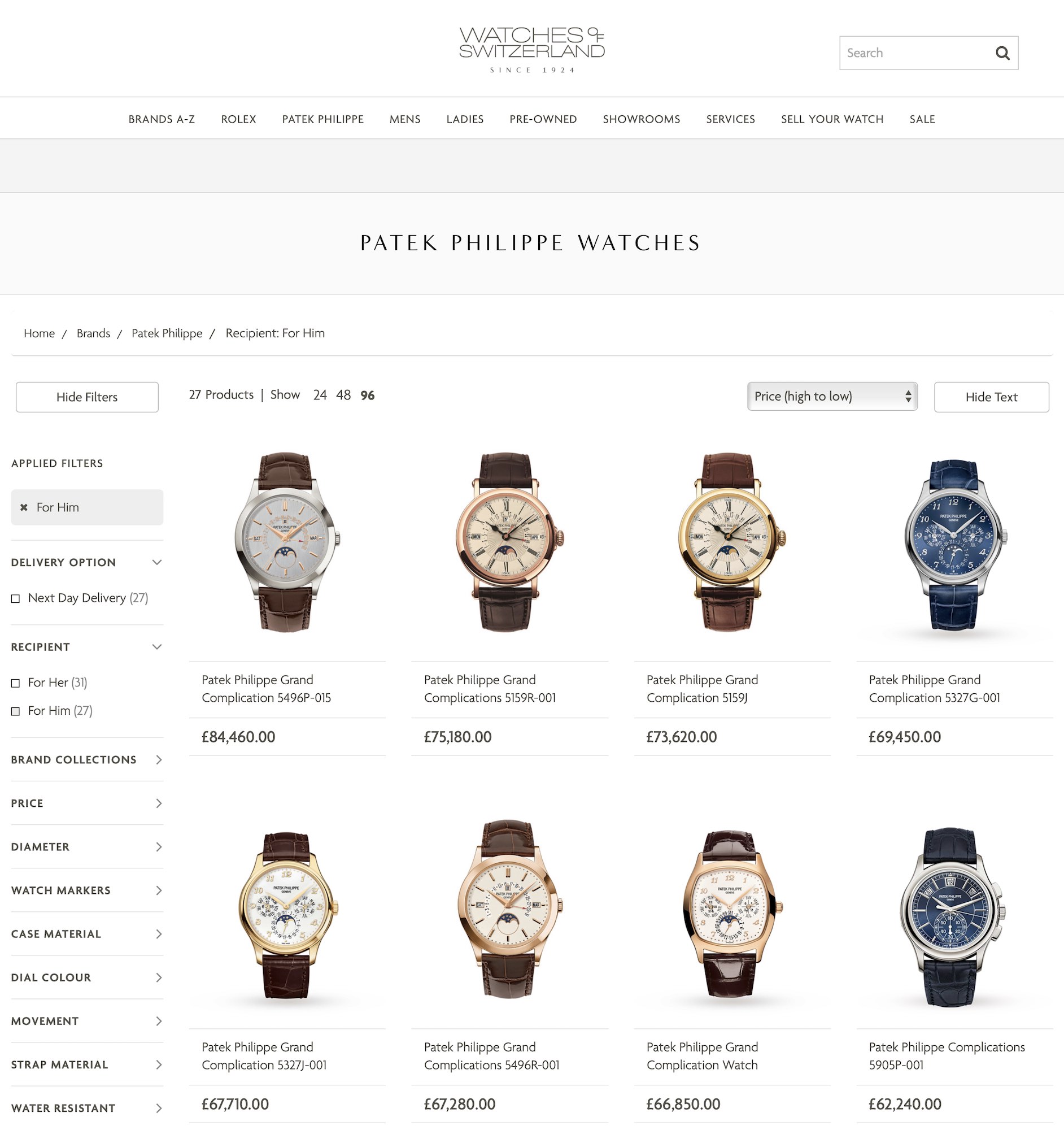
Brands and retailers are strained for cash. The consequences of having to pay rent on retail locations that are not operating, for now, will leave lasting after-effects on watch and luxury retail.
It is about time for watch brands to dedicate more resources to digital, introducing new experts in-house and growing their digital expertise. But it is not just about hiring digital experts but recruiting people who understand their business in order not to dilute the passion for watches and the relevant watch expertise. The ability to test-and-learn and to measure performance is paramount with digitalization. This provides an extraordinary opportunity to optimize investments and reduce low-impact activities!
Trade Shows – a new centre of gravity, Geneva
Trade shows, and in particular Baselworld, have been on shaky ground for years. Swatch Group, Breitling and Seiko were some of the major exhibitors to leave the event over the past few months. COVID-19 has probably put the nail in the coffin of the Basel fair. The cancellation of the 2020 edition has precipitated the exodus of heavyweight exhibitors to Geneva. Rolex, Patek Philippe, Tudor, Chanel and Chopard dropped a bomb announcing their collective decision to ‘pull out of Baselworld‘ to join forces with FHH, the organizer of Geneva Watches & Wonders (ex-SIHH). LVMH brands were fast to announce ‘they would be stepping out too’.
All the consequences of this exodus to Geneva are not known yet. The format of the event and the synergies with FHH need to be specified. And naturally, trade shows need to think of how they will shape their future.

Trade shows, specifically Baselworld, have got a bit of a bad rap lately. Some brands seem to favour roadshows. Somehow, traditional trade events no longer reflect the needs of B2B business in the digital age. But they still matter and the watch industry needs live interaction and powerful events. Watches & Wonders has initiated its transformation. More than just a B2B event, the idea is to reach a larger audience, to transform Watches & Wonders into a communication platform, a place for meeting and sharing for professionals but also for end customers. Let’s hope that this shift of the centre of gravity to Geneva will be the first step in a long-lasting and constructive transformation of the watch industry.


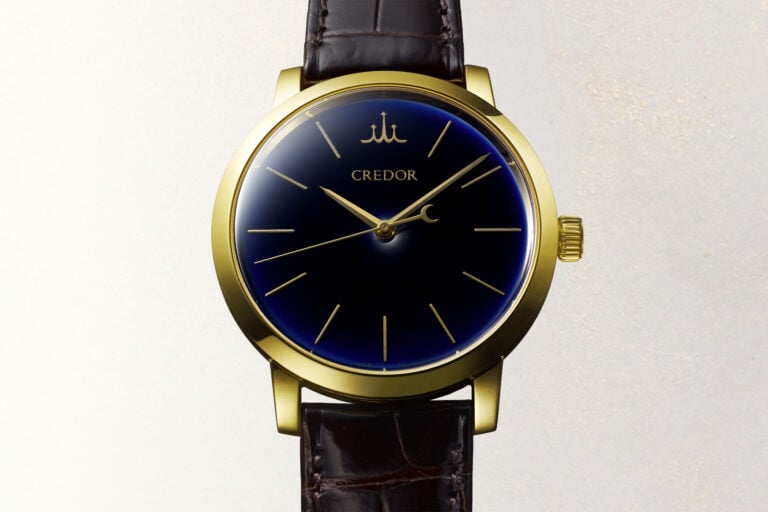

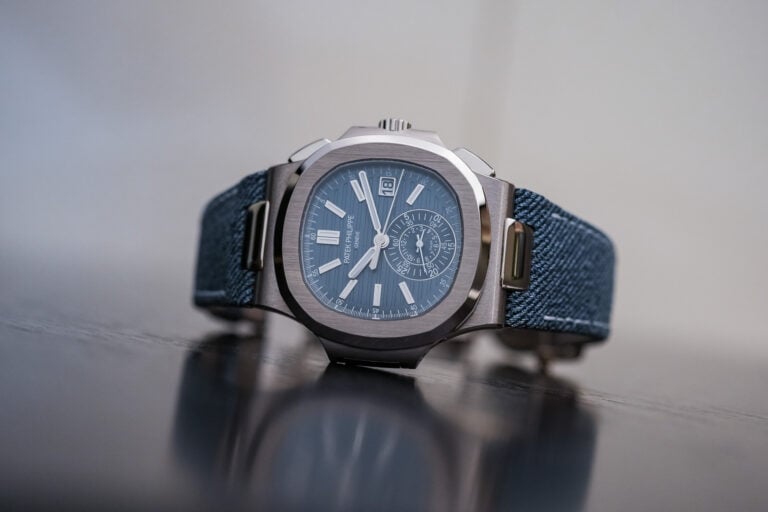
7 responses
The lesson of this crisis looks like being that those brands that have embraced e-commerce and have available stock that buyers want to buy and can buy will survive. Those that have not done these basic things will find survival difficult or impossible. As it stands brands like Omega, Breitling, Jaeger-LeCoultre etc should find survival possible Rolex not so much. Arrogance towards your customers will catch up with you. If you will not sell your product online you will regret it in the end.
So the post Corona answer is more seclusion and dehumanizing experience?
Virtual, digital sales of clone watches for sheep costumers, without guts, and personality. The need to conform. Fine.
PP, Rolex, AP and VC belong to this first group.
Besides this, for the happy few, independent watchmakers will continue providing exceptional, enriching, versatile, face to face contacts and unrivalled products and service.
Vintage will continue to have its own, collectors focused universe.
Arrogance and disrespect for the consumer that drives the economic engine should be the two things that are destroyed by the virus we are suffering with now. The primary enemy companies should wake up and try to defeat is the driver of many corporate boards and should be recognized, faced and destroyed and that enemy is GREED. Wake up, do I need to list the company names?
Rolex sits on $1 Trillion in cash, please do not worry about their ability to survive.
Thanks for the thoughtful account. Digital, digital, digital. Watches translate very poorly to digital, unless perhaps they are digital “watches”. Companies have much to figure out. Stock photos are almost universally poor. Many “reviews” are nothing more than regurgitated insipid press releases while many others are obvious payloa. Retailers are few and far between concentrated in a few cities/tourist destinations. Brand boutiques offer smiles, champagne, but no knowledge, and nary a discount or a meaningful value add like a second strap or free first service. Service, that is a black box. Why can’t a brand boutique offer service? Seems safer to buy a new watch than send for interminably long and expensive service. Online often comes with savings. Most brands offer the opposite. The prices online, factory direct, are the same as physical locations minus the customary discounts (from independent retailers) also without value adds. Online has risks. Will brands accept no cost returns? Prices, in general, are too high. Maybe it’s time to let it all die. Brands can’t figure out what to do so they raise prices and maybe make fewer watches. Perhaps the world has moved on.
Las remesas a China volverán a Europa y EEUU y por consecuencias de ello los precios bajarán solo hay que sentarse a esperar en red puede vender cualquiera al precio solicitado ya no
Saludos
@ z’
PP, Rolex and AP are independent watchmakers. Or did you mean the smaller ones which charge you the moon then you lose 30%-40% of the price as soon as you’ve left the enriching, versatile store? There comes a crucial point where the need to feel different – understandably driven by oversaturisation – meets the need for value-retention, and loses. Bear that in mind, perhaps.
Not that I don’t wish the likes of De Bethune, Gronefeld, Journe etc all the best, though. I still love that they exist.